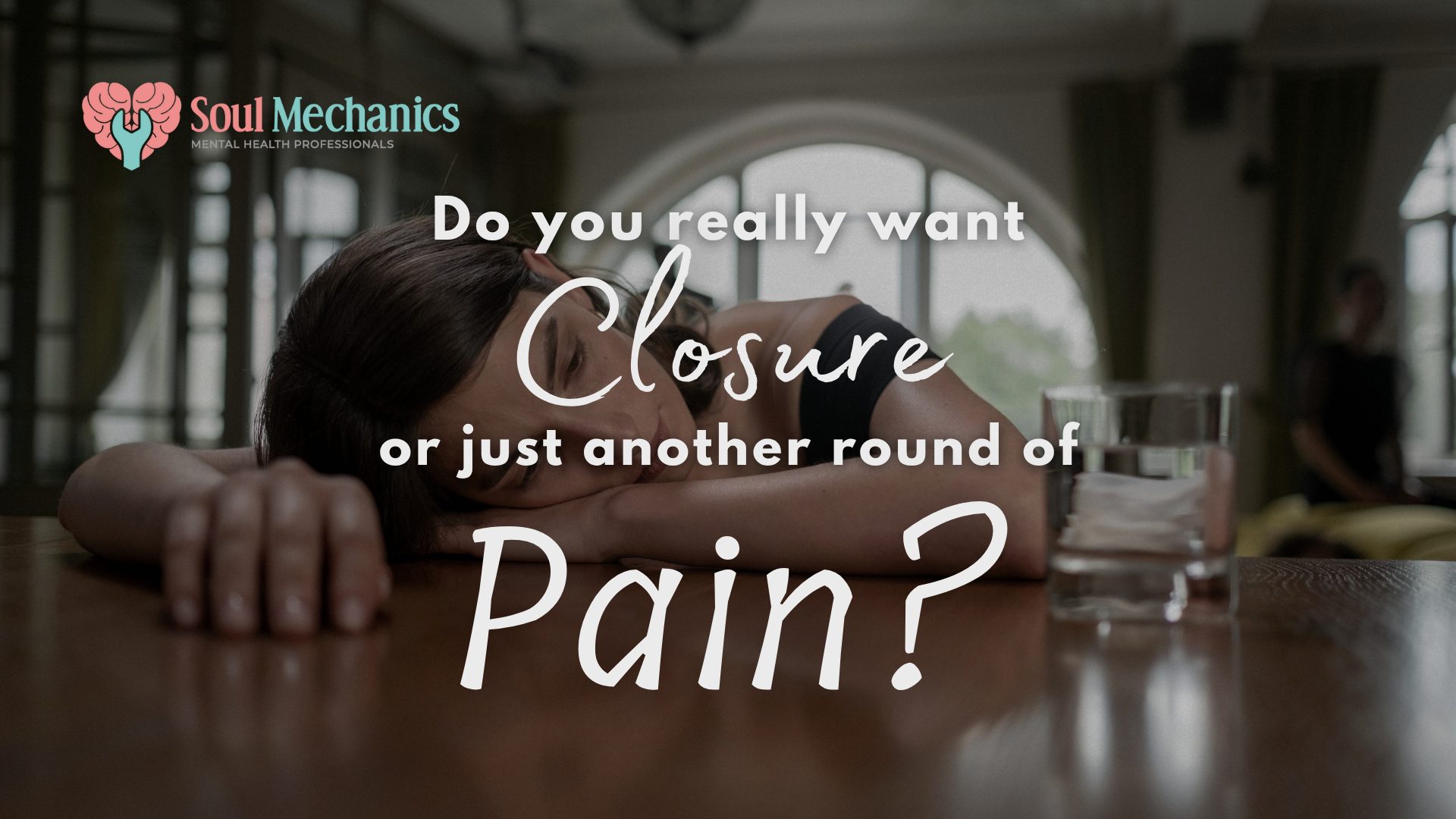Do You Really Want Closure, or Just Another Round of Pain?
Do You Really Want Closure, or Just Another Round of Pain?

Written by Jenefa Anthony KB 11780
The craving for one last text, one last conversation… but at what cost?
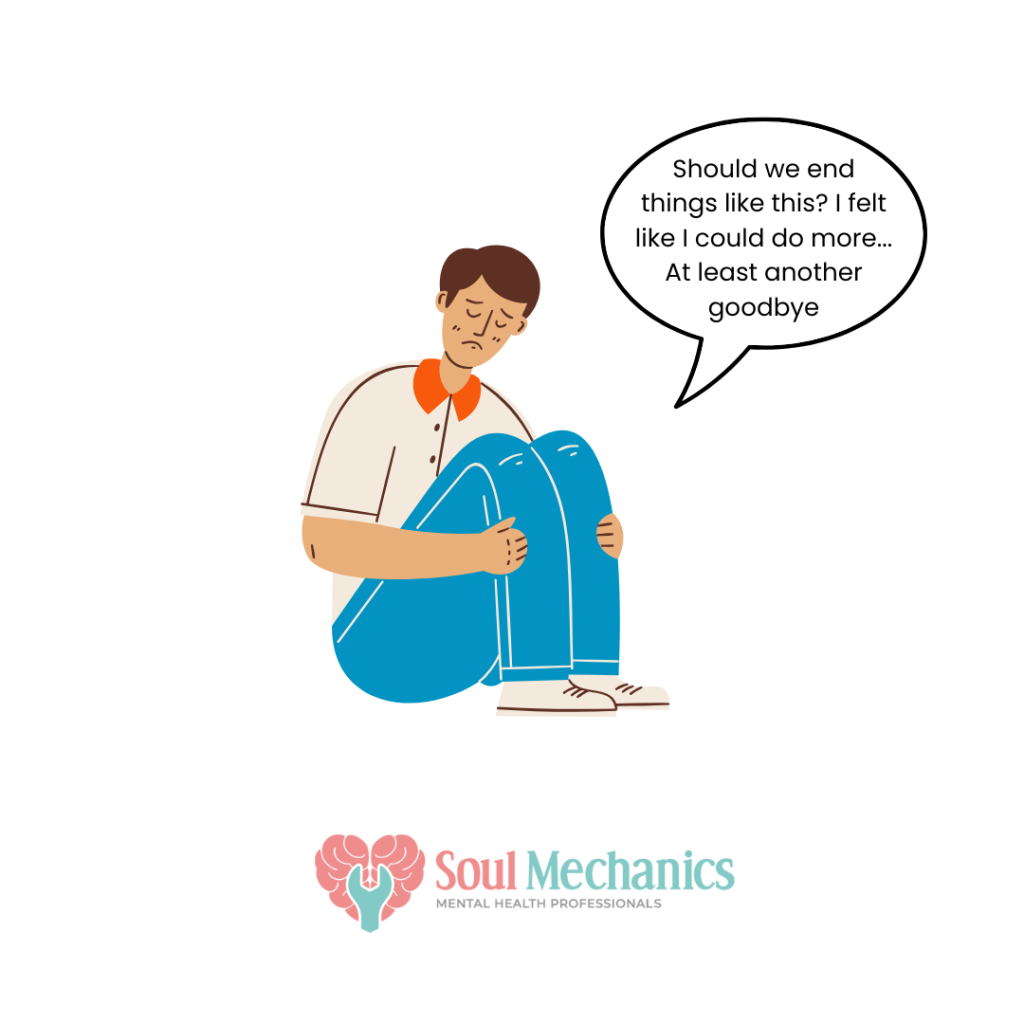
The desire for "closure" is normal when a relationship ends, whether it be love, friendship, or even familial. We convince ourselves that we would feel better if we could only have one more talk, one more explanation, or one more apology. With everything neatly tied up, we picture leaving feeling lighter.
The harsh reality is that we frequently end ourselves chasing more misery when we try to find closure.
Reminder: If you or someone you care about is going through a tough time, please know that you're not alone.
Our team at Soul Mechanics Kota Damansara and Soul Mechanics Ipoh is here to support you.Reaching out for help isn’t a weakness, it’s an act of courage, and a powerful step toward healing.
Why We Think Closure Will Heal Us
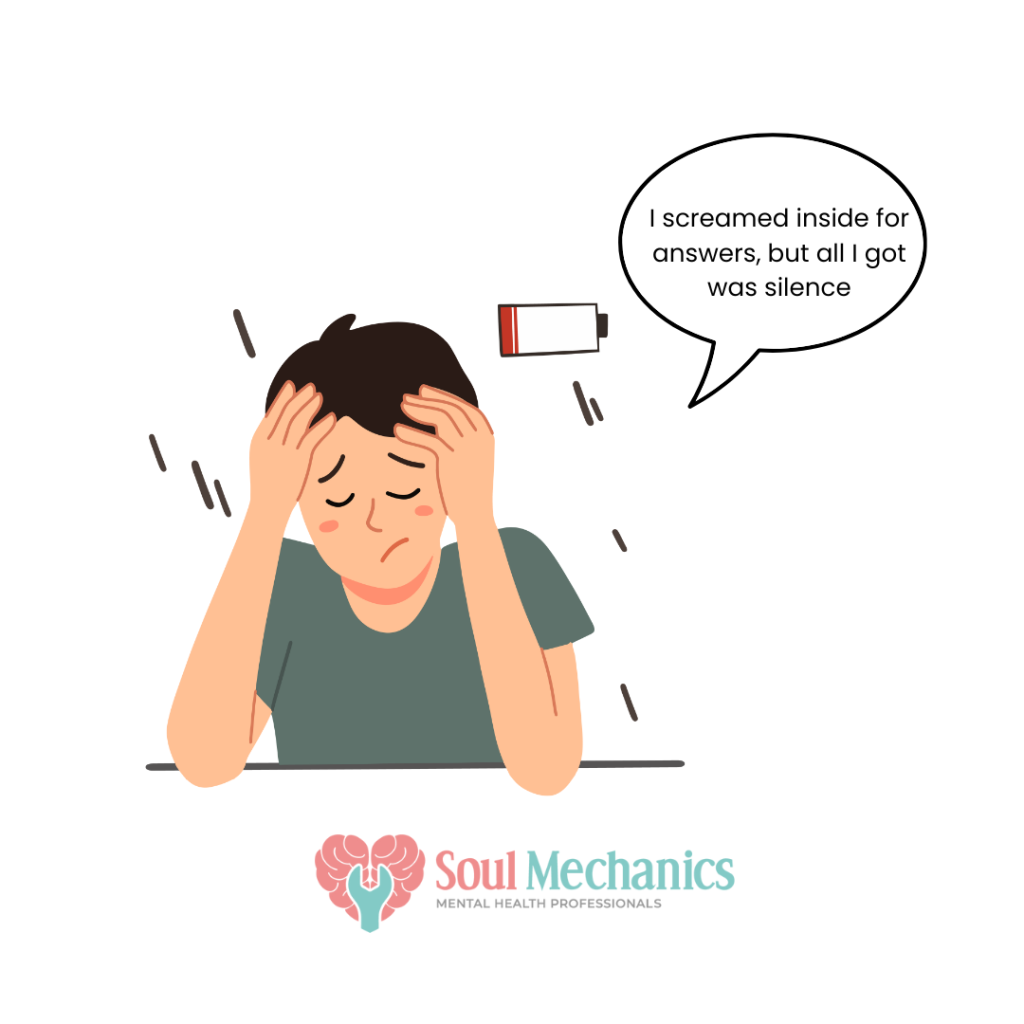
The human brain is programmed to look for rational patterns, explanations, and narratives. A relationship feels incomplete when it ends suddenly or leaves us puzzled. It's tremendous discomfort. We are plagued by uncertainty. We believe that we would feel better if we could simply understand why they did this and let them know how much they wounded us.
Understanding, we think, will lead to peace. Part of that is true - pain can be alleviated by understanding. However, most people overlook the fact that you rarely obtain closure from someone else. It is something you cultivate inside yourself.
Waiting for someone else to give you closure is like to waiting for the person who shattered the vase to come mend it, even if they may not even realise it's broken, don't care, or have already left.
You're bleeding from the jagged edges as you stand there in the debris.
What One More Conversation Actually Does
We hope the "one last talk" will be peaceful, healing, and enlightening. However, it frequently becomes something else in real life:
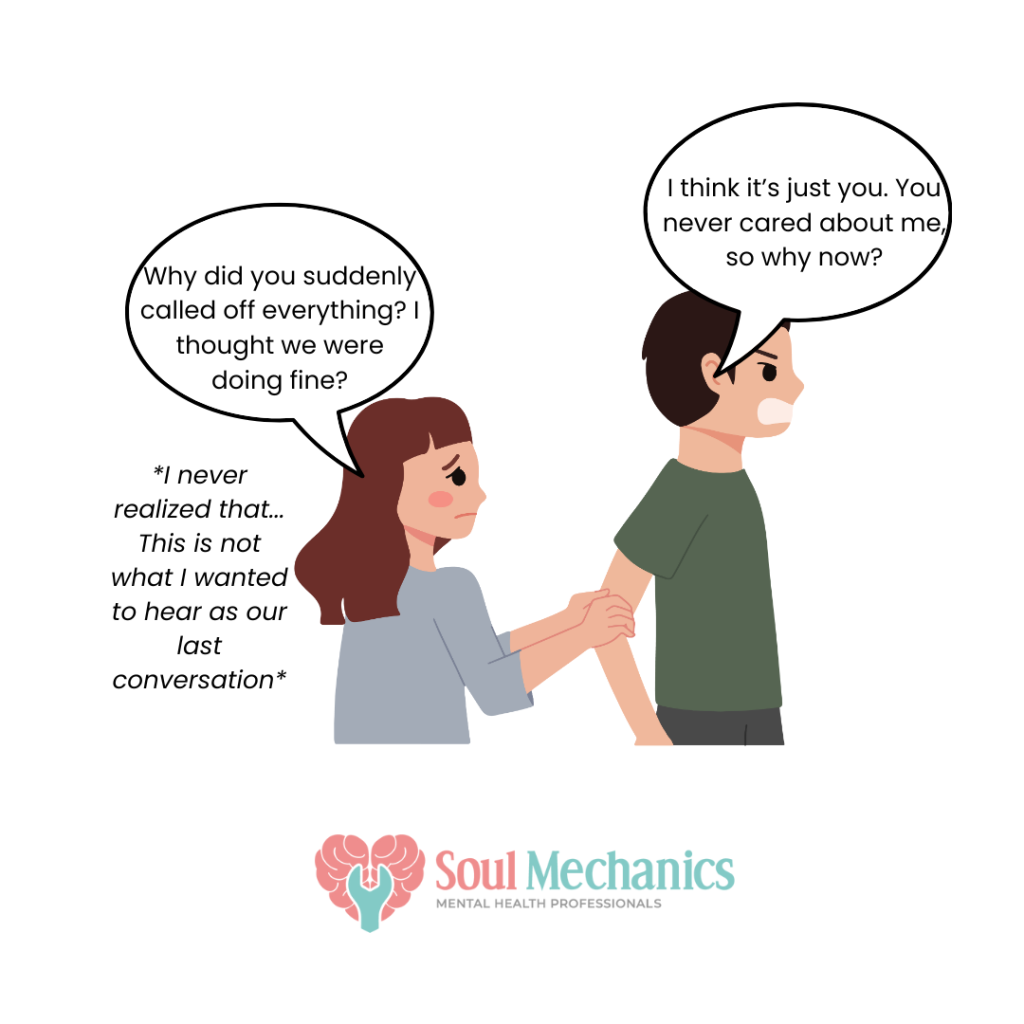
- Reopening wounds
It hurts more to hear them dismiss the pain you endure or defend their behaviour than it ever did to remain silent.
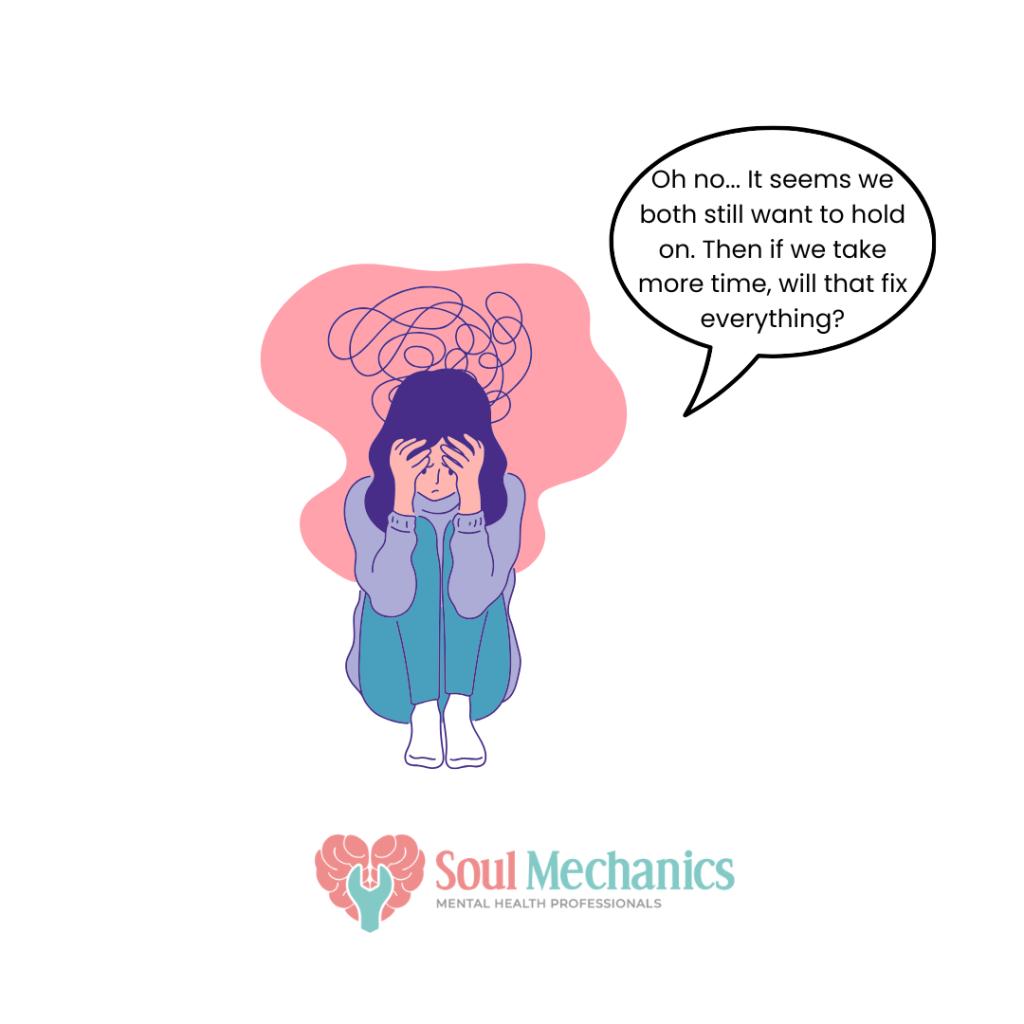
- False hope
If they appear sympathetic or emotional, you may conclude that they do care, which may lead to new fantasies about making things better.
- Deeper confusion
Individuals are complex. They may contradict themselves, convey conflicting messages, or leave you with even more unanswered issues.
Rather than finding a clear closure, you become entangled once more, repeating what they said, questioning yourself, and being enmeshed in "what if" possibilities.
It's similar to attempting to clean a cut with unclean hands. You're actually making the infection worse, even though you believe you're helping in its healing.
The Real Reason We Want Closure
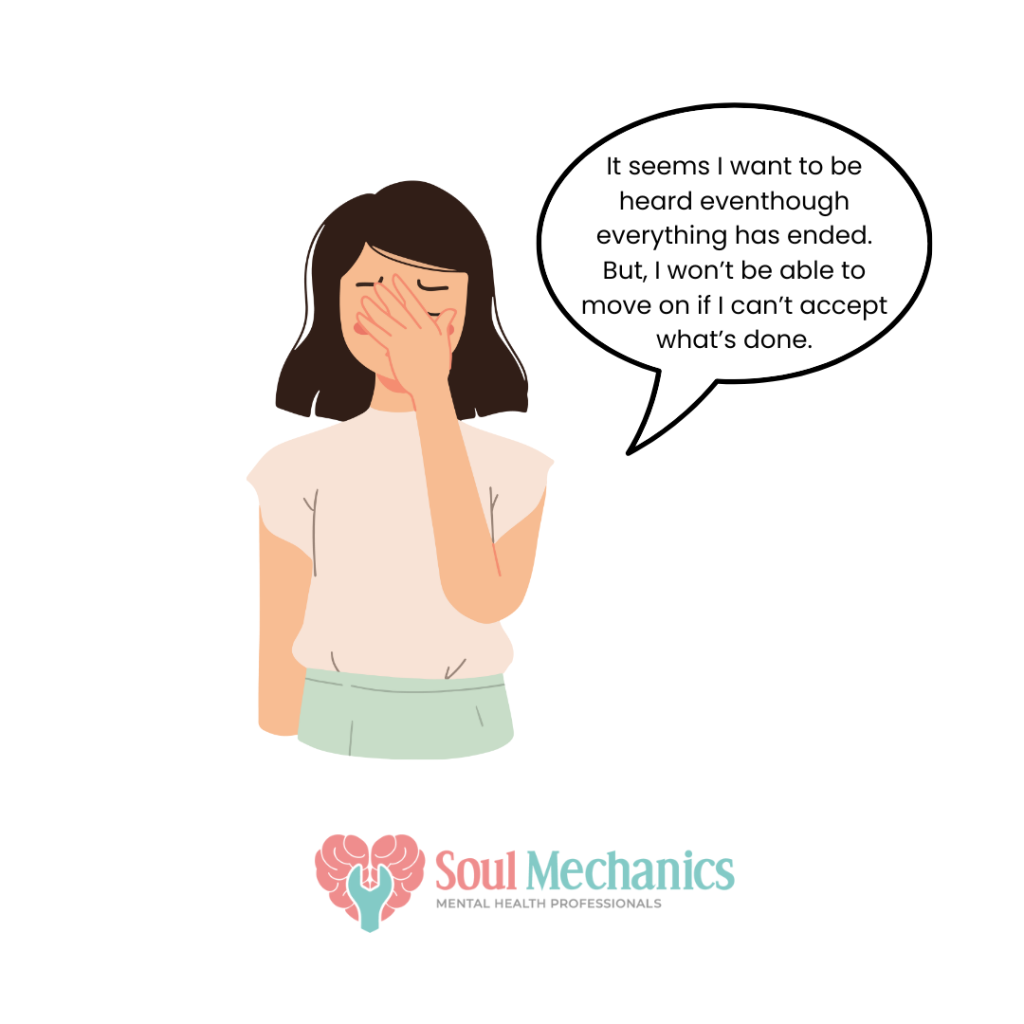
The goal of "closure" is often not understanding. It all comes down to wanting the other person to realise how hurt you are. To validate it. To feel regret their actions. T o offer an apology that is genuinely meaningful. To finally be one who you needed them to be.
Having such wishes is perfectly OK. It’s human. However, you remain stuck if your recovery is dependent on the actions of another person, who may not be able or willing to provide you with what you require.
Many people know deep down that they won't get the closure they're looking for. However, it is easier to reach out than to accept that the loss is irreversible. Pain can be strangely reassuring if it signals that you are still in contact with the person.
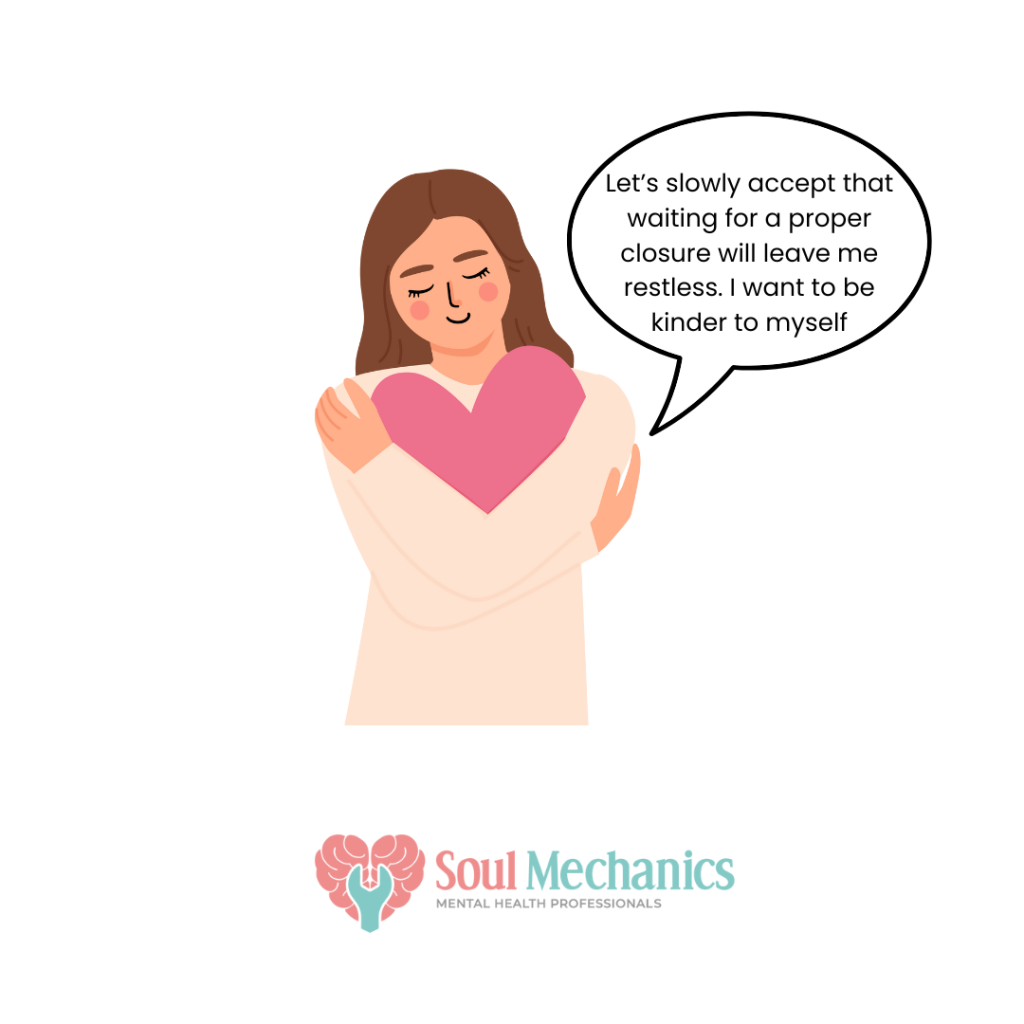
Closure Isn’t Given. It’s Chosen.
You don't have to wait for closure. You make the decision to make it for yourself.
It's an option to assert that:
- They might never provide me the kind of apology I deserve
- I might never receive the answers I need
- They might never even realise their actions
- I'm still allowed to heal, move on, and feel complete
It's really challenging. It seems unjust. It feels like giving up when you're still on the battlefield, hoping the opposing side would return for peace negotiations. But the true triumph is leaving that battleground.
Practical Ways to Create Your Own Closure
It takes more than just positive thinking to bring about your own closure. Overcoming a broken relationship requires a lot of work. These acts can be helpful:
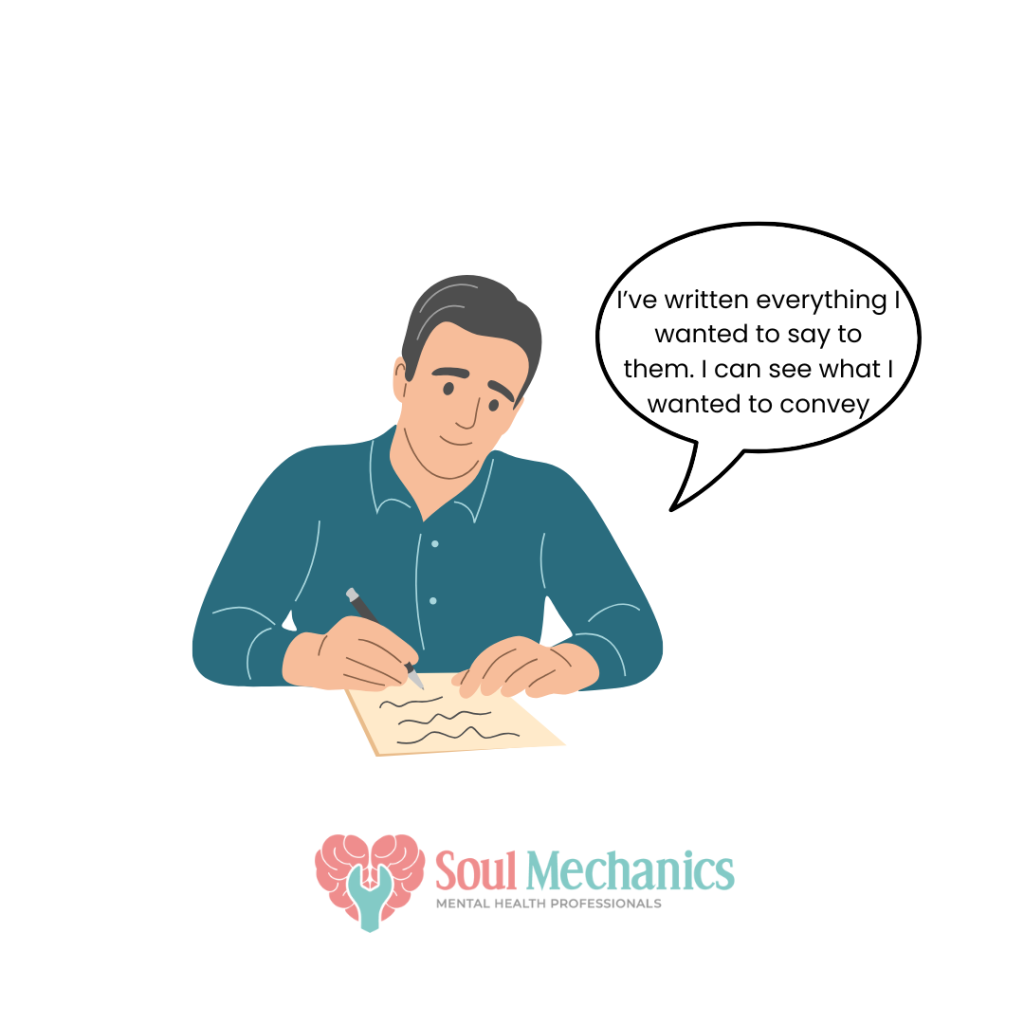
- Write the letter, but do not send it.
Put everything you wish to convey to the person in writing. Every emotion, each question, every painful or thankful experience. Take it all out.
Don't send it, though.
This is not for them, but for you. By doing this, your brain can digest the emotions without re-establishing the connection.
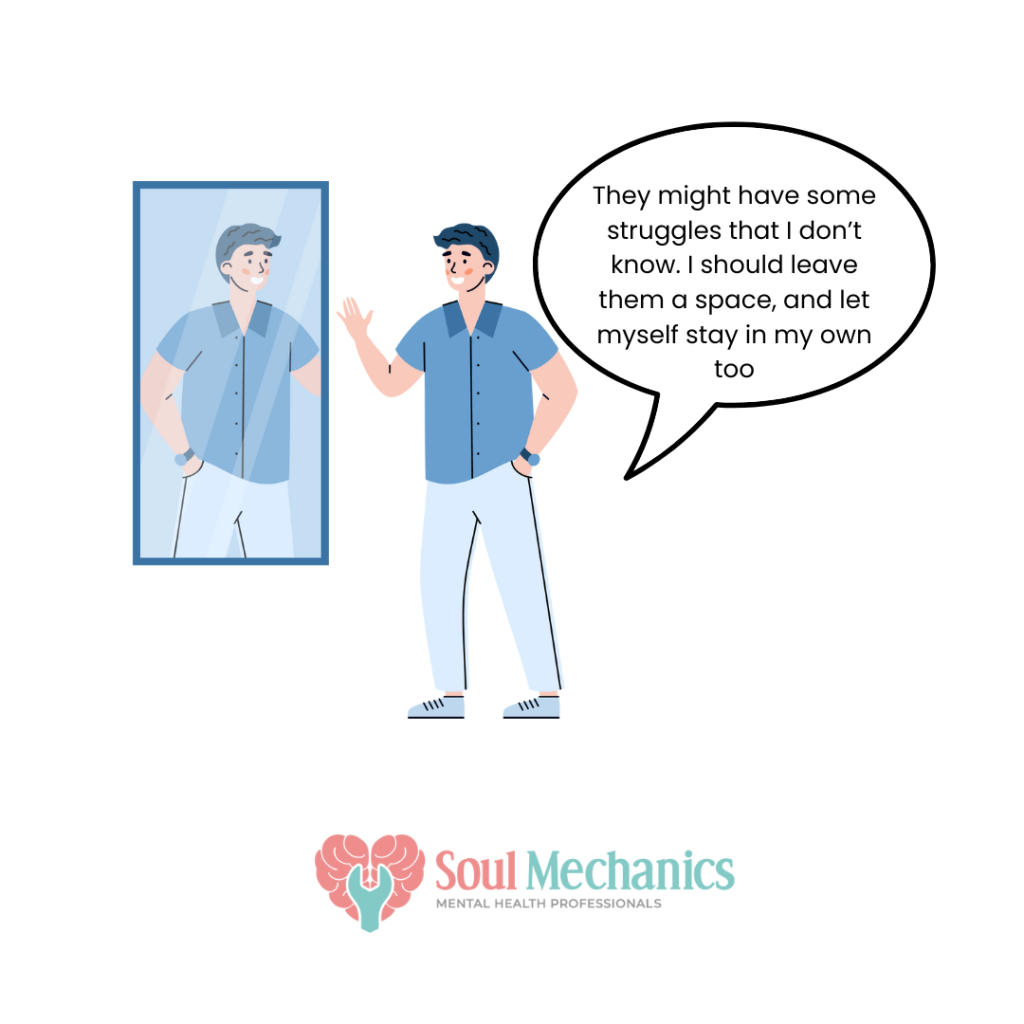
- Accept that you might never know "why."
There are instances when people hurt others without even realising it. They may be coping with their own wounds, anxieties, or unexplained shortcomings. It could take an eternity to wait for a satisfactory response.
Though bitter, acceptance is liberating. It's not necessary to have every piece of the puzzle in order to go.
- Focus on your own narrative
How do you interpret this ending? Are you telling yourself that you are not enough? You failed? Could you instead assure yourself that you tried, you loved, and you learnt?
The narrative you decide to believe will influence how you heal.
- Completely Cut Off Contact
Get rid of them from your life if you can. Block their phone number. Mute their social media accounts. Delete past chats.
It brings up old hurts every time you come across their name, even in passing. Give distance as a gift to yourself.
This is about safeguarding your energy, not about being aloof or dramatic.
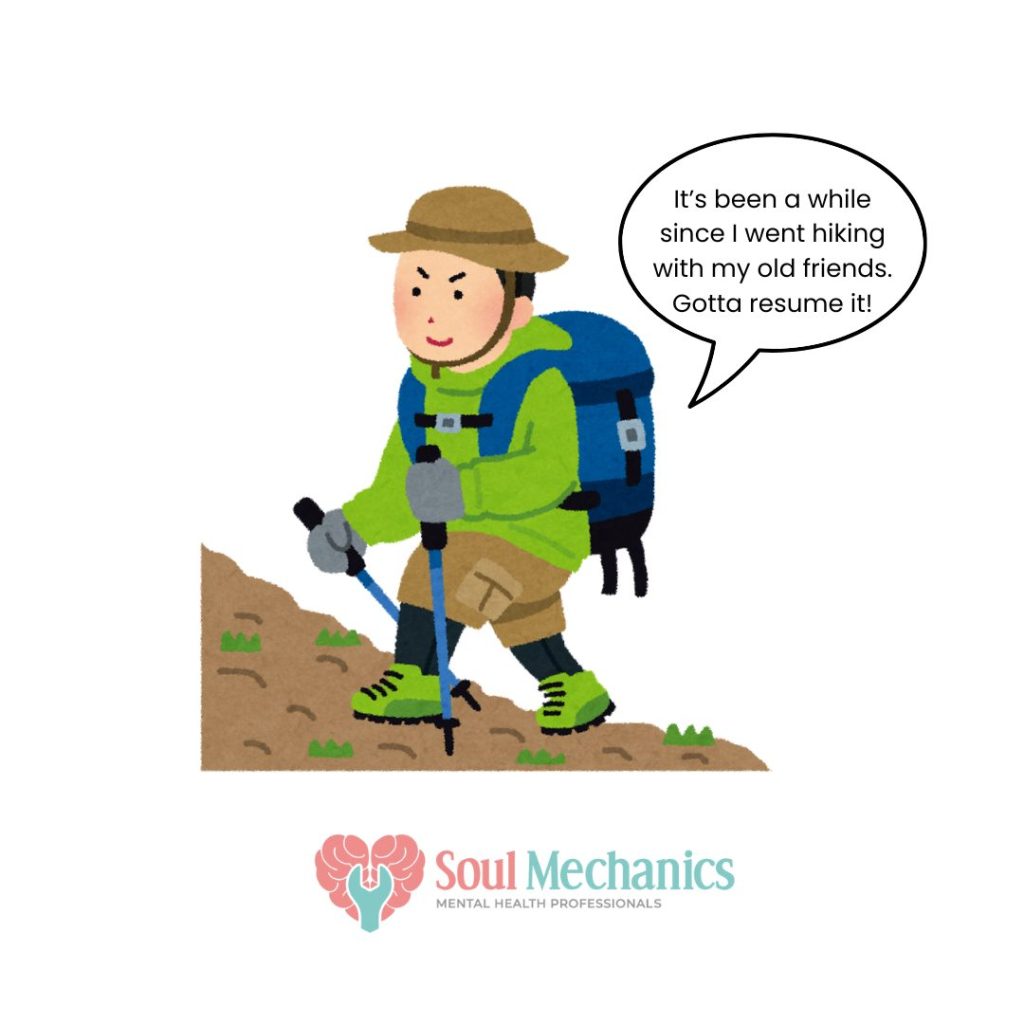
- Rebuild Your Identity Without Them
We often integrate relationships into who we are. We feel as though we lose a piece of ourselves when things end.
Discover who you are now, outside of that relationship. Resume old hobbies. Try some different ones. Get back in touch with your loved ones. Make experiences that are unrelated to the past.
Healing is about building for the future, not just mourning what has been lost.
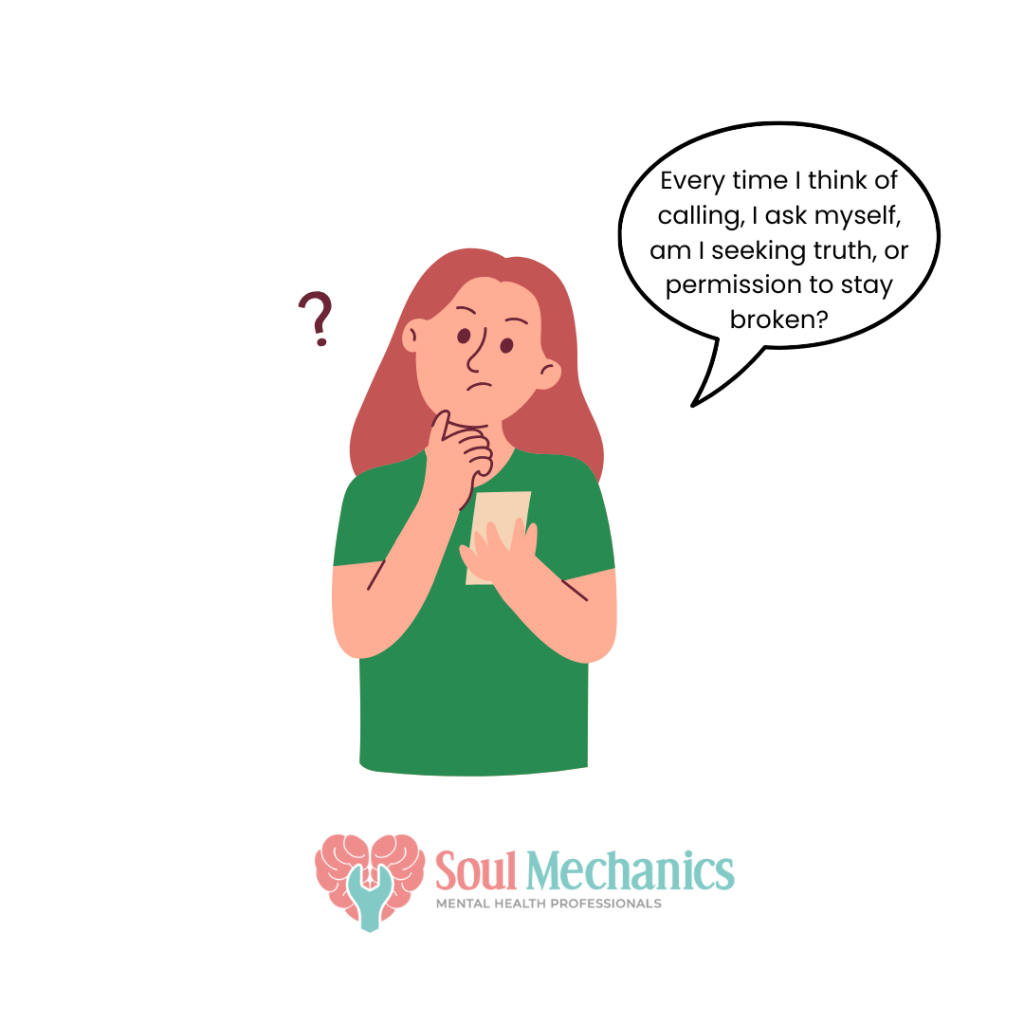
Ask Yourself: What Am I Really Hoping For?
Take a moment before you text that person or ask for that last meeting.
Sincerely, ask yourself: What do I hope to happen?
If the response is, "I just want to understand," keep in mind that understanding usually doesn't make the hurt go away the way we hope it will.
If your response is, "I want them to apologise or see my worth," consider whether you're prepared to put yourself through more pain for the sake of having a chance.
Maybe you'll see that what you truly need isn't what they say, but rather your own decision to stop causing yourself pain by waiting.
Reminder: If you or someone you care about is going through a tough time, please know that you're not alone.
Our team at Soul Mechanics Kota Damansara and Soul Mechanics Ipoh is here to support you.
Reaching out for help isn’t a weakness, it’s an act of courage, and a powerful step toward healing.
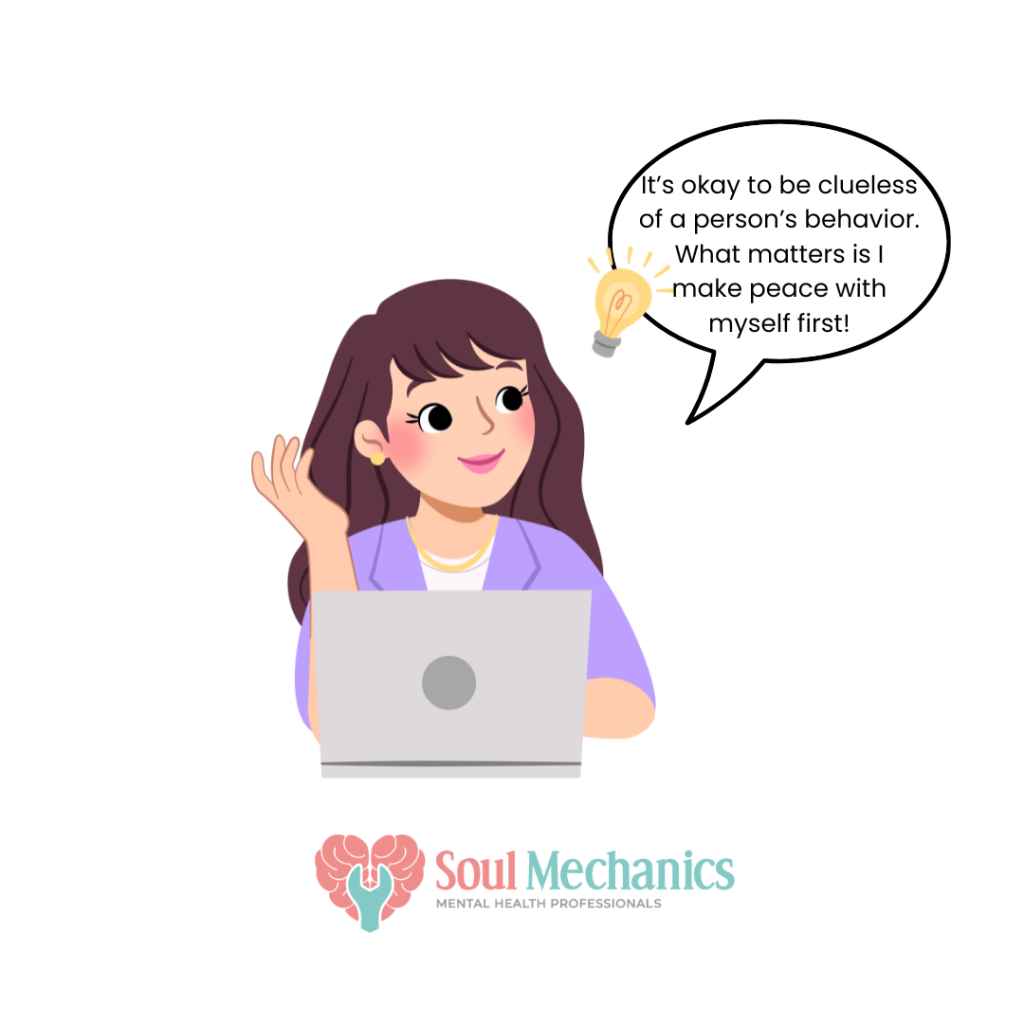
Pain Is Inevitable. Prolonged Suffering Is Optional.
There will be pain for you. That's what it costs to be human, to love, to care. Suffering, however, is a choice. It is the never-ending cycle of reaching out, hoping, being let down, and then reopening wounds. It is within your power to stop it.
Choosing closure does not imply that you no longer care. That doesn't imply that the relationship wasn't significant. It doesn’t erase those pleasant memories. It simply indicates that you are putting yourself ahead of a story that no longer serves you.
Therefore, while you are writing that "one last message," pause to evaluate whether you are signing up for another round of pain or truly seeking closure.
There's more value in your peace than another unsolved question. You are worthy of a brighter future than another painful cycle.
If you’re looking for a therapist in Kota Damansara or Ipoh area, you can click here for more information.
If you enjoyed reading this, why not broaden the horizon of knowledge by learning about "Inter-Generational Trauma"?
You can read the blog here.
For more content related to mental health do follow us on our official Instagram.

